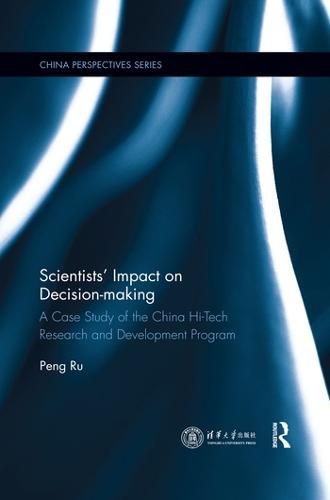Readings Newsletter
Become a Readings Member to make your shopping experience even easier.
Sign in or sign up for free!
You’re not far away from qualifying for FREE standard shipping within Australia
You’ve qualified for FREE standard shipping within Australia
The cart is loading…






With the increasing influence of science and technology (S&T) on socioeconomic life and public affairs, there has been a growing demand for S&T expertise in today’s public decision-making.
The National High Technology Research and Development Program (863 Program), involving hundreds of S&T experts, marked the beginning of a new journey for China’s high-tech development. This book discusses China’s S&T decision-making mechanism, with the 863 Program as the central case and scientist’ influence on public decision-making as the focus. More importantly, it extracts three key elements to analyze the determinative factors behind that influence - knowledge, value and institutions, and proposed a KIV framework of macro-analysis.
The KIV, being the first framework to generalize factors that could affect scientists’ influence on public decision-making, is of both theoretical significance and innovative value. In addition, by finding out those factors, this book attempts to create a decision-making environment conducive to scientists’ contribution of their knowledge.
$9.00 standard shipping within Australia
FREE standard shipping within Australia for orders over $100.00
Express & International shipping calculated at checkout
With the increasing influence of science and technology (S&T) on socioeconomic life and public affairs, there has been a growing demand for S&T expertise in today’s public decision-making.
The National High Technology Research and Development Program (863 Program), involving hundreds of S&T experts, marked the beginning of a new journey for China’s high-tech development. This book discusses China’s S&T decision-making mechanism, with the 863 Program as the central case and scientist’ influence on public decision-making as the focus. More importantly, it extracts three key elements to analyze the determinative factors behind that influence - knowledge, value and institutions, and proposed a KIV framework of macro-analysis.
The KIV, being the first framework to generalize factors that could affect scientists’ influence on public decision-making, is of both theoretical significance and innovative value. In addition, by finding out those factors, this book attempts to create a decision-making environment conducive to scientists’ contribution of their knowledge.